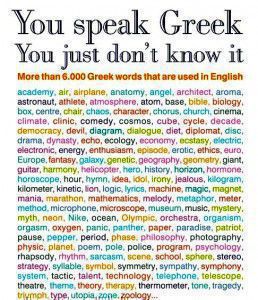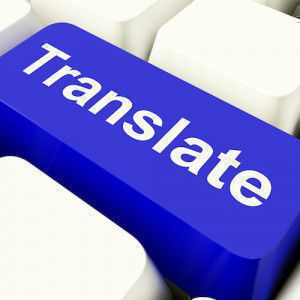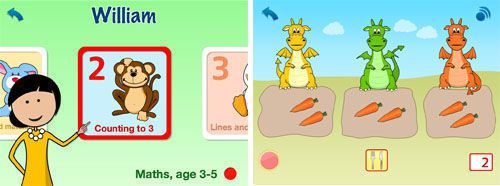Pure and simple?
Recently, Alex wrote about the way languages borrow words from each other. She pointed out that in English, we’re always using words from other languages, sometimes without even realising it, with déjà vu, karate and Zeitgeist being just a few examples.
But is this mixing of languages a good thing, or should languages remain ‘pure’?
Hoji Takahashi, a 71-year-old man from Japan, hit the headlines a few weeks ago when he sued the country’s public TV station, NHK, for the mental distress he’s suffered as a result of them using too many words derived from English. A couple of the examples given were toraburu (trouble) and shisutemu (system).
He’s not alone – many elderly Japanese people have trouble understanding these ‘loan words’, and the government has apparently been under pressure for over ten years to try and do something about the dominance of American English in Japan, which has been growing ever since World War II.
The lawsuit is quite controversial, with some dismissing it as ridiculous and others giving Mr Takahashi their full support. But whatever your view, it does raise an interesting question – one that we at EuroTalk often face when translating the vocabulary for our software. Should we go with the word that people most often use, or the one that’s technically correct in the original language?
It’s a difficult decision, particularly when translating for people who want to learn a language, because we know that we have a responsibility to get it right; language learners are putting their faith in us to teach them the correct words, so they’ll be able to speak to people and won’t be embarrassed by saying the wrong thing. But at the same time, the ‘correct’ word might not be the one that they’ll actually need when they get to wherever they’re going. This is particularly the case with African languages, where many words are adapted from French, and indigenous South American languages, where the Spanish influence is very clear. And it can be frustrating for someone who’s just starting to learn a new language to find that half the words are not actually in that language at all.
A few examples:
– In Maltese, the correct word for ‘airport’ is ‘mitjar’, but everyone says ‘arjuport’.
– In Swahili, although ‘tomato’ is ‘nyanya’, ‘tomato ketchup’ is known as ‘tomato’, although the technically correct translation is ‘kechapu ya nyanya’.
– In Tumbuka, when counting to 20, Tumbuka numbers are used, but beyond 20 the numbers revert to English.
There are many more examples, as we’ve discovered over the years and particularly when working on the translations for the new uTalk app. Each new translation is carefully considered and discussed to decide on the best choice from a practical point of view, selecting the word most people would actually use in real life – even if this means some people, like Mr Takahashi, don’t agree with the final result.
What do you think? Should language learning software teach a language in its purest form, or is it better to learn the words that are most commonly used, even if they’re borrowed from another language?
Liz
Do you know who you’re talking to?
Our post today is by Izabella Klein, who’s been working with us to translate our maths apps into Brazilian Portuguese. Izabella’s post is about the importance of getting to know your target audience as a translator, and understanding more than just the words used.
Have you ever read an article, document or webpage in your own language that you can clearly see has been translated from another language? The sentences don’t really make sense, or have wordings that are not commonly used where you come from or where it’s been published. Do you get bored or lose interest because of this? I would say most likely yes!
There are two main reasons for this. One, it has been translated by a translation device. Or two, it has been translated by real people, but they were not careful to take into consideration the target public – you.
Reason number one I will disregard, because I strongly do not recommend this option for translation. But let’s go a bit deeper into reason number two, and look at why many translations are not handled carefully, to catch the attention of the readers, or even just make them understandable.
Let’s take the English language as an example. How many different countries in the world speak English as a first language? USA, England, Australia, some of Canada, some of Africa and even more. But, although it is all English, each one of them has a particular way of communicating; they use different words, they have different local parlance, slang and so on. Spanish is another language spoken worldwide as a first language; take Spain, Argentina, Colombia, Mexico, Chile, Peru, Venezuela and Ecuador for example. And even if we talk specifically about Spain, they still have other variations, such as Catalan and Galician.
So, even if someone is fluent in a specific language, that doesn’t mean they are capable of translating perfectly to that language in any place in the world where this is the native language. You must understand the minimum of their culture, their slang, and how they usually communicate something that you are interested in communicating to them.
I’ll take myself as an example. I’ve been working for Japanese people for the last couple of years as a linguist, using Portuguese and English as source and target languages. In the beginning it was a hard task. Much of what was said or written to me was difficult to understand: their awkward accent, the different words they used (words that are in the dictionary, but I’d never really heard people saying them on a daily basis), or incomplete sentences. So I had to get used to their weird English sentences, sometimes just random words that I had to put together like a puzzle and figure out the missing words. But, in the end, it was just a matter of adapting to their culture, or to JapanEnglish as I call it. Now, I feel 100% confident while working with them. I had to spend a year studing their different habits, and basically dig a way into making myself understandable in their language, in this case JapanEnglish.
You might say JapanEnglish is not really a language, but I argue that it is. It’s just a mixture of Japanese and English, the same way Catalan is a mixture of Spanish and French; and Galician a mixture of Spanish and Portuguese. The only difference is JapanEnglish is not an official language. My point here is that it’s important to realise why you must get to know your target public as deeply as possible, so that your translation work will be accurate.
I can also take my internship at EuroTalk as a second example of my work experience. I worked in app localisation, focused on teaching maths to very young children. Some might say it must have been an easy task. But actually it was not that easy. Children are different from adults, they use different vocabulary and they can easily get distracted. Plus, you can’t use a completely different vocabulary than teachers use at school, because the main idea is to reinforce what they will learn or are already learning at school; otherwise you might just confuse them, which will mean unhappy children and parents.
I know that for most linguists time is money, as it is for most people, but a piece of advice from what I have learned during my career is, take some time and effort to study your market. I believe that if you do, your chances of boosting your career are greater.
Izabella
Something Borrowed: when one language just isn’t enough
After reading Konstantia’s post a few months ago about how many of our everyday words come from Greek, I started to think about where some of our other words came from. You might think that we are the ones influencing everyone else (words such as wifi in French, surfear for surfing the net in Spanish, and a lot of business jargon in German – downloaden, ein Workshop, ein Meeting and so on…), and of course that’s true. Most new inventions (the Internet, computers and related tech such as wifi) are named by Americans, and therefore the English word is often passed along to other cultures and absorbed into their languages. You’ll also find many non-English speakers throwing in English phrases amidst their native tongue. Any other Borgen fans will probably have noticed the way that characters casually use phrases such as ‘on a need to know basis’ whilst otherwise conversing in Danish. Clearly our language, especially in the business, IT and entertainment domains, has a huge global influence.
 However, if you look a little further back, you’ll find us doing exactly the same thing. It might seem incredibly cool to Europeans now to use English or merely ‘English-sounding’ words day to day, but we’re just as guilty of language-envy or just pure laziness with French, especially. How to describe that annoying feeling of being sure you’ve already seen or done something? Déjà vu, of course. Not to mention dozens of other words and phrases we all use on a daily or regular basis: laissez faire, enfant terrible, a la carte, a la mode, arte nouveau, en route, faux pas… I could go on for pages. You’d probably struggle to go through a day without using at least one or two obviously French words. It’s almost as if we simply couldn’t be bothered to think of our own words for some of these things, although I also suspect it has a lot to do with our associations with French as chic (another one!) and sexy. This is especially true in the beauty industry, which explains the proliferation of products labelled visage or with names like touche eclat remaining in their original alluring French guise.
However, if you look a little further back, you’ll find us doing exactly the same thing. It might seem incredibly cool to Europeans now to use English or merely ‘English-sounding’ words day to day, but we’re just as guilty of language-envy or just pure laziness with French, especially. How to describe that annoying feeling of being sure you’ve already seen or done something? Déjà vu, of course. Not to mention dozens of other words and phrases we all use on a daily or regular basis: laissez faire, enfant terrible, a la carte, a la mode, arte nouveau, en route, faux pas… I could go on for pages. You’d probably struggle to go through a day without using at least one or two obviously French words. It’s almost as if we simply couldn’t be bothered to think of our own words for some of these things, although I also suspect it has a lot to do with our associations with French as chic (another one!) and sexy. This is especially true in the beauty industry, which explains the proliferation of products labelled visage or with names like touche eclat remaining in their original alluring French guise.
French is the best example, as they are our nearest geographical neighbours, and historically one of our closest political connections, which explains the huge interconnection of our languages. However, as soon as you think about it, there are hundreds of other words that have crept into our parlance from other languages. Words like Zeitgeist and one of my favourites Schadenfreude have come over from German, whilst our food vocabulary owes a lot to Spanish (salsa, jalapeno, tortilla, nacho, paella…) We’re also becoming ever more familiar with words and especially foods from China and Japan. Sushi, sake, kimono, karate, karaoke and so on are everyday words to us, whilst we happily order bok choy, chop suey and chow mein without even thinking about it, not to mention concepts like yen, zen and feng shui. Taekwondo has made its way over from Korea, whilst we’ve taken words like bamboo and paddy from Malay.
This is just a quick look at some of the more obvious ways that our language has spread globally, and how many words we have absorbed from nearby European countries, but also from more distant Asian cultures. We’re such a global country, and it’s strongly reflected in our language. We’d love to hear more examples of English words creeping into other languages or other foreign words you’ve noticed in English, so feel free to leave a comment below!
Alex
Utility versus Beauty
Cristina Mateos is our Catalan intern here at EuroTalk, working on translating and recording our maths apps. In her blog post she explores a reason for learning languages that is often forgotten.
Utility versus Beauty.
Utility: Hammers, zips, kettles, light bulbs, electricity, mobile phones.
Beauty: Handwritten postcards, dawns, coffee smell, lovers looking into each others’ eyes, handknitted scarves.
 The world where I live stores useful belongings in closed wardrobes and turns on the radio so as not to listen to the silence around. As a Spanish teacher, I sell my courses by reminding these ‘utility users’ of the fact that 500 million people speak Spanish around the world. It is therefore extremely practical to be able to communicate in this language and to display that knowledge (especially if it comes with an official certificate) on one’s résumé. And I really believe that… and I am more than pleased with zips and light bulbs. But I feel sorry for the dawns. I feel sorry for the dawns and for language learners turning into language users. I would like my students to be able to ask for directions in Sevilla, complete a business deal with a big enterprise in Buenos Aires or get a train ticket in any Spanish train station, but I also want them to be fascinated by the beauty of my language.
The world where I live stores useful belongings in closed wardrobes and turns on the radio so as not to listen to the silence around. As a Spanish teacher, I sell my courses by reminding these ‘utility users’ of the fact that 500 million people speak Spanish around the world. It is therefore extremely practical to be able to communicate in this language and to display that knowledge (especially if it comes with an official certificate) on one’s résumé. And I really believe that… and I am more than pleased with zips and light bulbs. But I feel sorry for the dawns. I feel sorry for the dawns and for language learners turning into language users. I would like my students to be able to ask for directions in Sevilla, complete a business deal with a big enterprise in Buenos Aires or get a train ticket in any Spanish train station, but I also want them to be fascinated by the beauty of my language.
Los rinocerontes no pueden leer. This is probably the most pointless sentence ever, unless you meet a woman crying in disappointment because a rhino isn’t answering her love letters, and you find it necessary to clarify for her that rhinos cannot read. But the sentence itself: its sonority, the combination of the ‘e’ letters together, the way grammar is used in it, the choice of the masculine gender instead of the feminine… it moves language away from usefulness and places it closer to poetry. Don’t you find it amazing how it’s possible to play with a language and build nonsense sentences? Making up words – and this is something, as language learners, that we constantly do when trying to refer to concepts we don’t know the name for – just by using common lexical rules? (Like The mugness of a morning, or This dog is so killable when it starts barking in the middle of the night.) Have you ever fallen in love with a word in your own language just because of the way it sounds, as if it were a piece of music with no meaning at all apart from the feelings it causes for you? If not, I can suggest one in English that I love: wibble. And I can provide one in Spanish too… barítono. Beautiful as a handknitted scarf.
Let me come back to the point. As a Catalan speaker, I feel also sorry for my second first language. Catalan has been left apart so many times in the name of utility that too often I need to make a real effort to keep on using it. I have been told that Spanish is more practical. More and more parents in non-English speaking countries choose a school for their children taking into account nothing but the number of hours their children are going to be taught English, because English (and now probably also Chinese?) is the Future.
Then, in Utility’s name… we can close small shops and open more and more supermarkets. We can burn poetry books and publish more instruction manuals. We can forget about nice roasts and pies and cheesecakes, and ingest vitamins and protein pills every morning.
But if, like me, you feel sorry for the dawns, then learn another language.
Cristina
So, did you know you can speak Greek?
Today’s blog post is written by Konstantia Sotiropoulou, who’s been helping us to translate and record our Maths apps in Greek.
I bumped into the picture below a while ago and I thought this should be interesting. Undoubtedly, Greek is one of the richest languages in the world and is distinguished by an extensive vocabulary. In the past, the Guinness Book of Records ranked the Greek language as the richest in the world with 5 million words and 70 million word types!

The front cover of You speak Greek, You just don't know it, a book by Annie Stefanides (Ianos, 2010)
Well, many of these words have been widely borrowed into other languages, including English. Greek roots are often used to coin new words for other languages, especially in the sciences and medicine. Mathematics, physics, astronomy, democracy, philosophy, athletics, theatre, rhetoric, baptism and hundreds of other words are Greek. Moreover, Greek words and word elements continue to be productive as a basis for coinages: anthropology, photography, telephony, isomer, biomechanics, cinematography, etc. and form, with Latin words, the foundation of international scientific and technical vocabulary, e.g. all words ending with –logy (“discourse”). Interestingly, an estimated 12% of the English vocabulary has Greek origin. Greek has contributed to English in several ways, including direct borrowings from Greek and indirectly through other languages (mainly Latin or French).
In a typical 80,000-word English dictionary, about 5% of the words are directly borrowed from Greek; this is about equivalent to the vocabulary of an educated speaker of English (for example, “phenomenon” is a Greek word and even obeys Greek grammar rules as the plural is “phenomena”). However, around 25% are borrowed indirectly. This is because there were many Greek words borrowed in Latin originally, which then filtered down into English because English borrowed so many words from Latin (for example, “elaiwa” in Greek evolved into the Latin “oliva”, which in turn became “olive” in English).
Greek and Latin are the predominant sources of the international scientific vocabulary. Greek is often used in coining very specialized technical or scientific words, however, so the percentage of words borrowed from Greek rises much higher when considering highly scientific vocabulary (for example, “oxytetracycline” is a medical term that has several Greek roots).
In education, an excellent way to build vocabulary is teaching students how to find roots in words. Since many words have their base in the Greek language, beginning with the roots from this ancient language is a good place to start. This list of English words with Greek origin will give students a basis for further exploration into the roots of the English language.
Now you that you have seen how many Greek words you know, I am going to teach you some more common ones like “kalimera” which means “good morning”, “Ya sou” which means “hi”, “Me lene” which means “my name is” and “efharisto” which means “thank you”. And if you are interested in learning more and discovering how many you already know, try EuroTalk’s uTalk Greek app.
And who am I to be talking about the Greek language? I am the Greek intern of EuroTalk, who translated and recorded into Greek their new Maths apps for young children. An interesting and fun experience for a young translator like me. I have to say that I really enjoyed working in this office, which gives you the sense of a family home. People here are calm and friendly, the kitchen is fully equipped with all kinds of snacks and during the day we get to listen to nice music while working! How amazing is that?
I started towards the end of January by translating the scripts of the app and soon after I recorded the first topics. I caught myself playing the app more than I needed to, as the games are really fun! I am sure young kids will truly enjoy it while learning basic Mathematics rules. And I know that my three-year-old niece, who will be playing the app in a few weeks, will at least have a constructive and educational first contact with technology!
So, whether you want to take up a new language or help your child have a nice start with Maths, you know that EuroTalk is here for you!
* There is an interesting video on YouTube that explains the History of English and the influence that it had from other languages!
Konstantia




